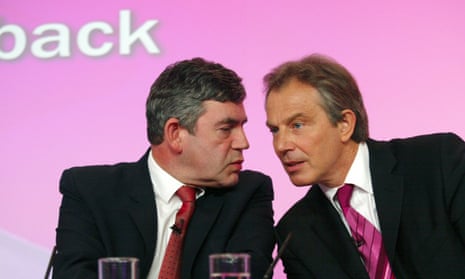Jonathan Freedland attributes New Labour’s electoral victory in 1997 to “doing whatever it took to win” (Tony Blair had it easy. Keir Starmer is in a much deeper hole, 15 October). But there is no point in gaining power if you sell your soul to the devil. The BBC’s Blair & Brown: The New Labour Revolution, which he refers to, also attributes Labour’s success to vanquishing or at least suppressing the left of the party, thus bringing Labour into the electable mainstream.
This comfortable analysis forgets that no political party in this country has won an election in the past 30 years without the backing of News International. It is this and not the showmanship of Boris Johnson that explains why, despite all the U-turns and bungling of the Covid response, the Conservatives remain ahead in the polls.
Yes, it was great for Labour to win in 1997. But what a hangover. A dispassionate look at what New Labour actually achieved in 13 years of rule can justly be described as average. True, we got the charismatic Mr Blair; we had tax credits, but we also got the private finance initiative, and no rolling back of the anti-trade-union legislation of the Thatcher years. We saw no new initiatives in social housing. We got expansion of prisons; indeterminate sentences; the Iraq war. Its one notable success, Gordon Brown’s handling of the 2008 banking crisis, was rebranded as Labour’s fault when Rupert Murdoch finally pulled the plug of his support.
It is true, as Mr Freedland points out, that Labour is in a worse place now than it was in 1992. We have New Labour back, only this time having stamped out the left; it arrives politically bankrupt and without anything else to offer.
John Hart
Norwich
In his study of the first six decades of Labour party history, Parliamentary Socialism, Ralph Miliband concluded that Labour was far more interested in parliament and winning elections than pursuing socialism. You report (15 October) that Labour is spending more on legal fees than it is on campaigning. One wonders if even those who back Keir Starmer will grasp that the factional war on the left that this represents is not about either socialism or winning elections, and question what the actual purpose of Labour under his leadership is?
Keith Flett
Tottenham, London
